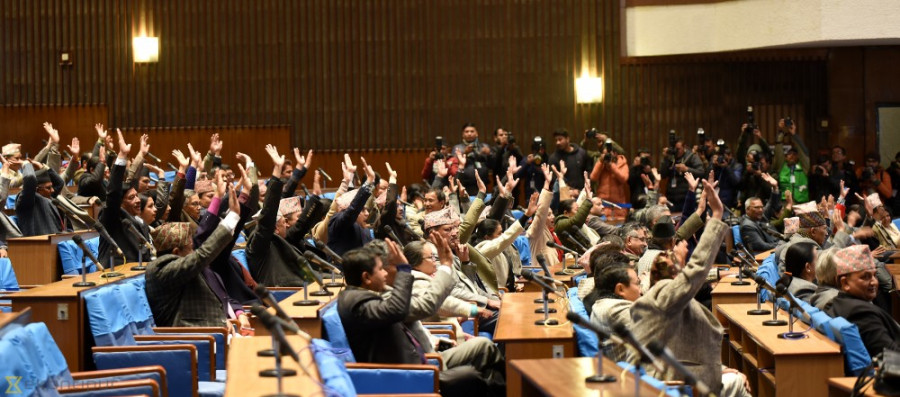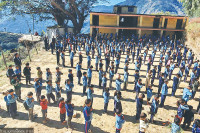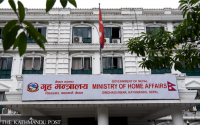National
Bill tabled to restrict civil servants from sharing views on social media
A new bill tabled at the House of Representatives has restricted civil servants from sharing their views through media including their micro-blogging sites, which experts claim would affect their right to expression.
Tika R Pradhan
A new bill tabled at the House of Representatives has restricted civil servants from sharing their views through media including their micro-blogging sites, which experts claim would affect their right to expression.
The Federal Civil Service Bill proposes strict provisions for civil servants which will remain in effect even after their retirement. Though the Civil Service Act-1993 in force has similar restrictions, the new bill has added more of them.
Clause 75 of the bill restricts them from criticising the government. “No civil employee shall, on his/her real or pseudo name or anonymity, publish any feature article, provide any news to the press, broadcast a speech through radio or television etc, make any public speech or publish any statement via broadcast or social media in such a manner as to be contrary to the policies of the Government of Nepal or to undermine mutual relationship between the Government of Nepal and the people or the relationship with any foreign country.”
Another clause restricts civil servants from publishing news relating to governmental business. “No civil employee shall, without being authorised by the Government of Nepal, provide or divulge, directly or indirectly, to any other unauthorised employee or non-governmental person or press any confidential matter which was known to him/her in the course of performing the governmental duty or any matter prohibited by law or any document or news written or collected by him/her.” This restriction will also apply to a person who has been relieved of the government service for any reason whatsoever.
The new bill that replaces the existing Civil Service Act-1993 has a provision that restricts retired public officials from sharing the information they knew, which experts claimed would violate their freedom of expression. According to the bill, the pension of the retired civil servants could be stopped if they violated the provision.
The provision restricting retired civil servants from expressing their views, according to experts, was included after retired civil servants made critical comments in the media against the government’s activities. Prime Minister KP Sharma Oli and his advisors had been critical of the comments of former civil servants.
Media expert Suresh Adhikary said the civil servants do have their own code of conduct but that does not mean that they are not Nepal’s citizens and the state cannot forget that they can express their opinion as citizens.
A civil servant also can exercise his right under the limits of his/her profession. “I feel that this provision has come to tighten their right to expression,” he said. “If you allow them to organise but restrict their right to expression, there is no significance of the organisation.”
Also a former chairman of the Federation of Nepali Journalists, Acharya said the civil servants should ensure the people’s right to information by providing information demanded by citizens. “Giving information to the public does not mean that they should give information as directed by their authorities. A citizen cannot deny citizens information saying that s/he does not have the authority,” he said.
On October 31 last year, the Ministry of Education, Science and Technology endorsed a policy barring all staff and teachers from criticising the government and political parties or posting comments to that effect on social media. The policy bars people working in the education sector from criticising the government, political parties, and their leadership either through their own comments, by sharing the posts of others or by liking them.
The Social Media and Mobile Phone Use Directive endorsed by Education Minister Giriraj Mani Pokhrel was an attempt to prevent publication of the government’s decisions before they are fully endorsed and to block negative comments on the government’s activities.
The directive that applies to nearly 500,000 workers, including school and university teachers both from private and public institutions across the country, has separate clauses guiding the use for official and private social media accounts.
Like the civil service bill, the policy allows employees only to publicise the government’s final plans and policies and encourages positive comments on posts related to the government and the parties.
Suresh Adhikary, spokesman for the Ministry of Federal Affairs and General Administration, however, claimed that the bill does not restrict the right to expression of civil servants as the provision was only meant for a number of secret issues. “The provision would apply only on the issue restricted by the constitution not to inform,” he said, clarifying that the bill intends to manage the information sharing system




 12.58°C Kathmandu
12.58°C Kathmandu














